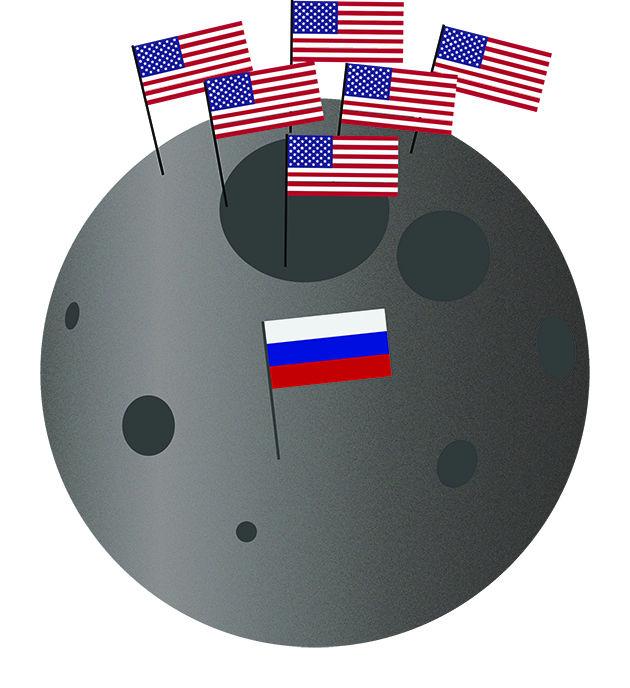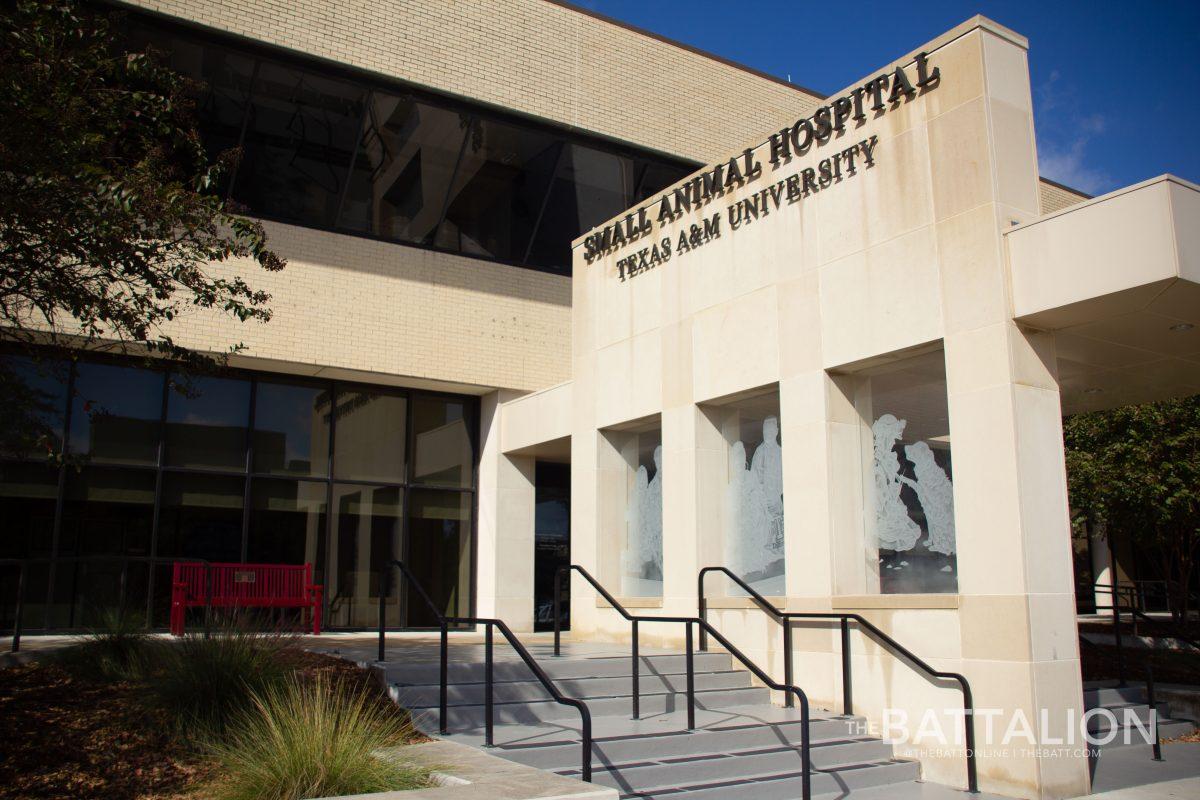The United States is currently the only country on Earth to have sent astronauts to the moon, but that record may not hold as other nations begin to turn their gaze toward Earth’s largest satellite.
Russia’s space exploration program Roscosmos announced last week its plan to place astronauts on the moon by 2029. The plan, if eventually carried out, would face technical and political challenges before a Russian flag joins its American counterparts on the lunar surface.
Charles Hermann, professor of international affairs at the Bush School, said Russian attempts to land unmanned modules on the moon in the late 1960s were largely unsuccessful, causing the Russians to abandon the project when the United States succeeded in 1969. He expects the new plan is part of a strategy to gain international recognition and interest.
“This is part of a larger Putin strategy to reestablish Russia as a significant political player and a major state in international affairs that needs to be taken into account,” Hermann said. “It is consistent, it seems to me, with his pattern in Crimea, expanding the seas of Crimea, his encroachment into Ukraine, and the much more active role he and Russia are playing in Syria.”
John Junkins, distinguished professor of aerospace engineering, said getting astronauts to the moon and back is no easy feat.
“There are many many technical challenges, but the biggest one is attention to detail with a very, very large and complicated effort and to do that over a sustained period of time so that they can get there and back safely,” Junkins said. “They have the advantage in knowing it has been done, but that doesn’t make it any easier.”
Junkins said a moon landing involves a mixture of various disciplines.
“Everything from life support, to designing the rockets themselves, all of the navigation aspects and control functions, the tremendous attention to detail, to integration of a massive human effort and many technologies, and then the discipline that is required to do this safely,” Junkins said. “Many of the challenges are associated with relearning the learning curve of Apollo, the many numerous details that are required to put together a mission of this size and to execute it on time and for a reasonable cost.”
Hermann said politically and economically, Russia might experience problems in a moon mission.
“It’s a long way until 2029, and there is not only the technological challenges of doing this but perhaps even greater is the financial one,” Hermann said. “And the Russian economy is incredibly dependent on petroleum at this point in time and if they don’t have a stronger economic base than they do now it may be difficult to sustain, to allocate, the kinds of resources to this project that it will require.”
Russia is not the only power that has its sights on the moon. China successfully landed a rover on the moon in December 2013, and the European Space Agency has expressed interest in collaborating with Russia for its mission to the moon.
Hermann said a manned mission would be a substantial step for China.
“In some sense, China might be in a better position to make some important advances than Russia,” Hermann said. “They are a bit quieter in projecting long-range objectives, but that would be very significant for them in terms of their intercontinental ballistic missile systems and command and control systems. China is clearly another player.”
The United States is focusing on other areas of space exploration, Hermann said.
“Meanwhile of course the United States has really pushed on not thinking about the moon but Mars, and so NASA has talked about manned missions to Mars in roughly the same time frame,” Hermann said. “That would probably, in terms of a propaganda effect, eclipse Russia, if the United States did in fact successfully land human explorers on Mars.”
Junkins said he hopes the Russian plans are part of some bigger exploratory or scientific strategy.
“If the Russians are setting about a lunar mission in the context of a grander mission then I think this is a great thing,” Junkins said. “If it’s go there and return victory I don’t see the point of that per se, we know we can get there, it’s expensive but we need to do something beyond that. This is a first step rather than the end in of itself.”
A renewed space race
November 3, 2015
0
Donate to The Battalion
$2790
$5000
Contributed
Our Goal
Your donation will support the student journalists of Texas A&M University - College Station. Your contribution will allow us to purchase equipment and cover our annual website hosting costs, in addition to paying freelance staffers for their work, travel costs for coverage and more!
More to Discover










